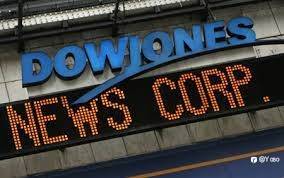TradeMax Global Markets

The Dow Jones Industrial Average (DJIA), commonly known as the Dow, is one of the world's most widely recognized and followed stock indexes. It provides investors with a snapshot of U.S. stock market performance and serves as a barometer of the country's economic health. In this article, we'll take a closer look at the history, composition, calculation, and significance of the Dow Jones Industrial Average.
History: The Dow Jones Industrial Average was created in 1896 by Charles Dow, co-founder of Dow Jones & Company. Initially, the index included only 12 companies, primarily in the industrial sector. The number of companies included in the index has changed over the years, as has its composition to reflect the changing U.S. economy. Today, the Dow is made up of 30 large publicly traded companies, representing a variety of industries.
Composition: The components of the Dow Jones Index are selected by The Wall Street Journal's editors, who aim to include companies that are leaders in their industries and have a significant impact on the U.S. economy. The index covers a wide range of industries, including technology, healthcare, financials, consumer goods and industrials. Companies currently included in the Dow Jones include Apple, Microsoft, Boeing, Johnson & Johnson and Goldman Sachs.
TMGM
Calculation: Unlike other market cap-weighted indexes, the Dow Jones Industrial Average is price-weighted. This means that the index's movements are affected by the price of each component stock, rather than the market capitalization of the company. To calculate the index, the prices of the 30 constituent stocks are added together and divided by a divisor, which is adjusted periodically to account for stock splits, dividends and other corporate actions.
Implications: The Dow is widely viewed as a key indicator of U.S. stock market performance and is closely watched by investors, analysts and the media. It is often used as a benchmark to evaluate the performance of individual stocks, mutual funds, and other investment portfolios. Changes in the Dow Jones Index can have a significant impact on investor sentiment and market trends because it reflects the collective performance of some of the largest and most influential companies in the United States.
However, it's worth noting that the Dow Jones Industrial Average has its limitations. With only 30 components, it may not be fully representative of the U.S. stock market as a whole. Additionally, the price-weighted calculation method can cause distortions, as higher-priced stocks have a greater impact on index movements. As a result, other indexes, such as the S&P 500, which include a wider range of companies and use a market capitalization-weighted approach, are generally considered more representative of the market as a whole.
In summary, the Dow Jones Industrial Average is a widely recognized and closely followed stock index that provides a snapshot of U.S. stock market performance. It has a long history and includes 30 large, influential companies from various industries. While the Dow Jones is an important indicator, investors should consider other indexes and factors when making investment decisions.TMGM
Tuyên bố miễn trừ trách nhiệm: Quan điểm được trình bày hoàn toàn là của tác giả và không đại diện cho quan điểm chính thức của Followme. Followme không chịu trách nhiệm về tính chính xác, đầy đủ hoặc độ tin cậy của thông tin được cung cấp và không chịu trách nhiệm cho bất kỳ hành động nào được thực hiện dựa trên nội dung, trừ khi được nêu rõ bằng văn bản.


Tải thất bại ()